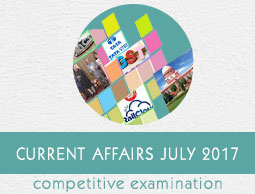
- Appointments
- Awards
- Books & Authors
- Committees
- Deaths
- Defence
- Economic
- Environment
- Finance
- Important Days
- International
- Miscellaneous
- National
- Persons in NEWS
- Places in NEWS
- Regional
- Reports
- Resignations & Retirements
- Science & Technology
- Sports
- July 2017 - Exams Resources
- Current Affairs - Quiz
- Current Affairs - Test
- Current Affairs - PDF
Current Affairs July 2017 - International
1 - US started rolling out expedited clearance of pre-approved, low-risk Indian travellers

US has started rolling out for India, its Global Entry programme which allows for expedited clearance of pre-approved, low-risk travellers. By expanding Global Entry eligibility, CBP is transforming the international arrivals process, making it more secure, efficient and welcoming, for the millions of Indian citizens who visit the US each year.
India is the 11th country whose citizens are eligible to enrol in the CBP initiative. Global Entry is currently available at 53 US airports and 15 pre-clearance locations.
2 - Donald Trump appointed Indian American Krishna R Urs as ambassador to Peru
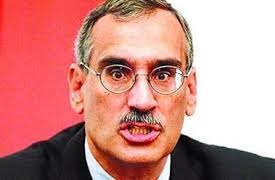
U.S. President Donald Trump has appointed Indian-American Krishna R Urs as the new US Ambassador to Peru. Mr Urs is currently Charge d'Affaires of the US Embassy in Madrid. He took over after James Costos resigned.
President Trump had recently nominated Kenneth Juster, the President's Deputy Assistant for International Economic Affairs and Deputy Director of the National Economic Council, to be the Ambassador in New Delhi. Trump has appointed Indian-American Nikki Haley as the US Permanent Representative to the UN.
3 - Ana Brnabic elected as first gay woman Prime Minister of Serbia
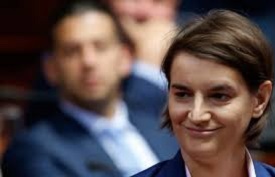
Ana Brnabic became the first openly gay Prime Minister of Serbia after she was elected by the Serbian parliament. She is also Serbia's first female prime minister.
Serbias President, Aleksandar Vucic, nominated Brnabic for the position of Prime Minister. Brnabic is quite new to the political scene of Serbia as she joined politics only last year when she became the countrys first openly gay minister, heading the ministry for public administration and local self-government.
4 - Japan and EU reach broad deal on Economic Partnership Agreement
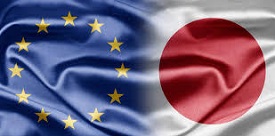
Japan and the European Union have reached a broad deal on an Economic Partnership Agreement that would affect about 30% of the world's gross domestic product.
Japan's Prime Minister Shinzo Abe and European Commission President Jean-Claude Juncker announced the deal in Brussels.
The two sides settled important issues after four years of negotiations. The EP Agreement is the first of its kind among large, advanced economies, and would be one of Japan's biggest trade deals.
5 - 5th Meeting of BRICS Education Ministers held in Beijing

Meeting of BRICS Ministers of Education was held on 5th July, 2017 at Beijing, China. The Indian delegation was led by Shri Prakash Javadekar, Minister of Human Resource Development. Delegation of all the five BRICS countries participated in the two-day deliberations. Beijing Declaration was adopted at the meeting.
Beijing Declaration identified some specific activities to deepen the cooperation among the BRICS Member States, encompassing the entire spectrum of education from school and higher education to vocational and technical education. At the conclusion of the BRICS Education Ministers meeting, a bilateral meeting was also held between the Minister of Human Resource Development.
6 - BRICS Health Ministers Meeting held at China
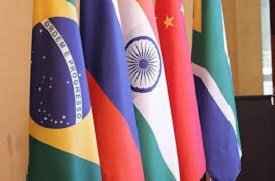
BRICS Health Ministers Meeting held at Tianjin, China. The Union Health Minister spoke on the theme Strengthen Health System and Achieve Health-Related SDGs.
Highlighting the achievements of India in the health sector, Shri Nadda stated that India has expanded the number of vaccines under Universal Immunisation Programme (UIP) and launched Mission Indradhanush aimed at expanding coverage by reaching the unreached.
The Health Minister further informed that free dialysis services are provided free of cost to the poor under the recently launched Pradhan Mantri National Dialysis Programme which is on Public Private Partnership mode.
7 - Informal BRICS Leaders Meeting in Hamburg
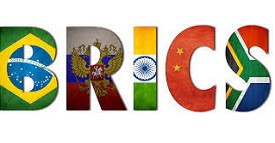
The leaders of the 5 BRICS countries held an informal meeting on the side-lines of G20 Summit in Hamburg, Germany. This was in run up to the forthcoming 9th BRICS Summit in September in Xiamen, China.
President Xi of China said he looked forward to welcoming the BRICS leaders. The Prime Minister appreciated momentum in BRICS under the Chairmanship of President Xi and extended full cooperation and best wishes for the BRICS Xiamen Summit.
The leaders discussed preparations and priorities for the forthcoming Xiamen BRICS Summit.
8 - 21st India-Myanmar National Level Meeting held in Myanmar
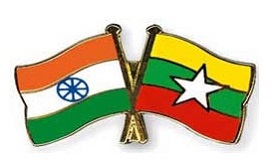
21st India-Myanmar National Level Meeting took place at Nay Pyi Taw, Myanmar. During the meeting, security, cooperation in prevention of drug trafficking, boundary matters, wildlife smuggling, visa and prisoners in jail of respective countries were discussed.
The two sides mutually agreed that all steps should be made to ensure tranquillity along the border and safety and wellbeing of people in the border areas.
India attached utmost importance to the discussions under the framework of National Level Meetings which involved representation from all agencies with relevance to security and border management.
9 - Model United Nations Regional Conference held in Kathmandu
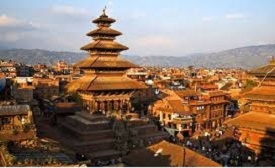
A Model United Nations (MUN) Regional Conference was held at Kathmandu. The event was organised by the US Embassy in partnership with the Youth Thinkers Society.
Youths from 12 South and Central Asian countries including India participated in 5-day conference. The basic aim of the MUN was to provide a platform to young minds to channelize energy and resources for a more prosperous and peaceful world.
The delegates discussed a wide range of issues including environment and water security, promoting human rights of migrant workers, finance security, nuclear non-proliferation and countering youth radicalisation.
10 - European Parliament gave nod to first ever EU-Cuba pact
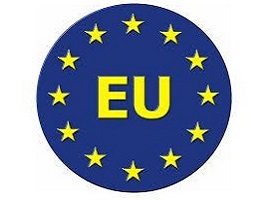
EU-Cuba cooperation deal, overlooking lingering concerns about human rights violations, was approved by European Parliament. With the approval of this deal, Cuba joins other Latin American countries with similar agreements with the EU for improvements in human rights.
Since, human rights have been of great concern in Europe, the European Parliament adopted a non-legislative resolution. The agreement lays the basis for trade relations but full implementation will require ratification by the EUs 28 member countries.
11 - Pakistan test fired ballistic missile named NASR
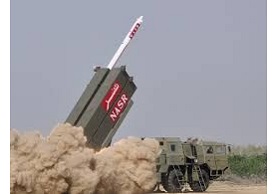
Short-range surface-to-surface ballistic missile 'Nasr' was test fired by Pakistan, after successful series of training launches and tests.
NASR is a high-precision weapon system with the ability to be deployed quickly with an enhanced range of 60-70 kilometers. It is similar to that of Cold military doctrine developed by Indian Army.
Army chief Gen Qamar Javed Bajwa, who witnessed the launch, appreciated the training and planning of Armed Strategic Force and role of engineers and scientists in the milestone launch of NASR.
12 - 122 countries gave nod to historic UN treaty
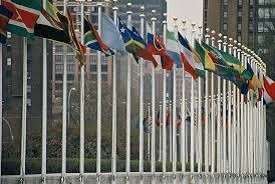
In order to ban nuclear weapons, around 122 countries approved the first-ever treaty to ban nuclear weapons at the UN meeting.
According to UN conference President Elayne Whyte Gomez, 122 nations were in favour whereas Netherlands and Singapore opposed the said decision and Canada did not take part in negotiations.
Historically, in the last 20 years, it is the first multilateral nuclear disarmament treaty to be concluded in more than 20 years.
It will be offered for signatures in September and come into effect, when 50 countries have ratified.
13 - Khaltmaa Battulga selected as Mongolias new president
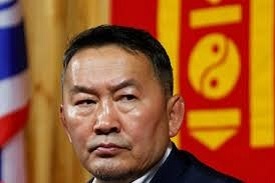
Veteran Martial Arts star Khaltmaa Battulga was elected as Mongolia's President with 50.6 % votes beating opponent, parliament speaker Miyeegombo Enkhbold of the ruling Mongolian People's Party.
Besides being a politician, Khaltmaa Battulga is a businessman who owns a hotel, a Genghis Khan-themed amusement park, and food companies for baked goods and meats. Ex-president Tsakhia Elbegdorj will step down as president after finishing his second and final term.
Mongolia follows a parliamentary democracy where government is run by a prime minister, but the president has powers to veto legislation.
14 - India is fourth largest foreign investor into UK
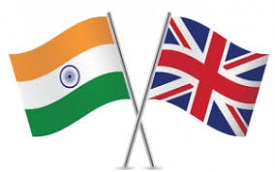
India has slipped by one spot to become the fourth-largest foreign investor into the UK. The USA, China and France occupy the top three positions in the ranking. India set up 127 new projects in Britain last year.
The data was published by the Department for International Trade. The UK has received two per cent more investment than the previous year post-Brexit. It claims the number one destination for inward investment in Europe.
15 - US House passed bills to address human trafficking

The US House of Representatives has voted to reauthorize three bills to address the issue of human trafficking both inside and outside the US.
The three bill passed by the House were Empowering Law Enforcement to Fight Sex Trafficking Demand Act, Enhancing Detection of Human Trafficking Act and Frederick Douglass Trafficking Victims Prevention and Protection Act. The development was hailed by US President Donald Trump and rights activists.
16 - Zimbabwe's Parliament passes bill, giving sweeping powers to President
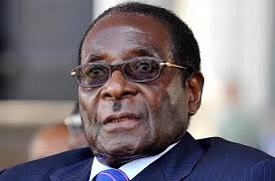
Zimbabwe's parliament passed a bill amending the constitution to give the president sweeping powers to appoint the country's top judges without consulting any other institution.
As per the previous provisions, the president could only appoint a chief justice from individuals recommended by the judicial services commission and after public interviews of the candidates.
If the bill is passed as a law, Mugabe will get the sole responsibility to appoint the chief justice and their deputy.
17 - Turkey hosted 22nd World Petroleum Congress International Conference
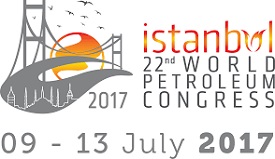
Turkey, Istanbul hosted 22nd World Petroleum Congress (WPC) International Conference. Theme for 2017 22nd World Petroleum Congress was Bridges to Our Energy Future.
The 22nd WPC provided the platform for open dialogue to build bridges between consumers and producers, governments and industry to address developments and solutions for sustainable production and use of the world's energy resources.
Union Minister for Petroleum and Natural Gas, Dharmendra Pradhan witnessed the conference and chaired a ministerial session on the subject Current Economic Strategies in Indian Oil and Gas Sector.
18 - US House of Representatives passed Bill on defence co-operation with India
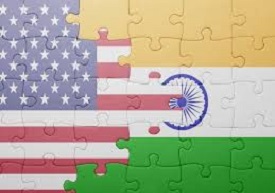
A $621.5 billion defence expenditure bill to advance defence cooperation with India, was passed by the United States House of Representatives by making amendments to National Defense Authorisation Act (NDAA), 2018.
This amendment has mandated the Secretaries of Defence and State to develop with a strategy for advancing defence cooperation between India and the U.S in six months and address common security challenges.
The NDAA is a United States federal law specifying the budget and expenditures of the United States Department of Defence.
19 - Sheikha Lubna al Qasimi tops poll of most powerful Arab women
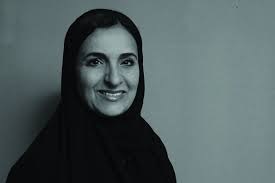
According to Forbes Middle East, Sheikha Lubna al Qasimi, the UAE Minister of State for Tolerance has topped a poll of the most powerful Arab women in government this year.
Ms Qasimi was followed by two women from Egypt - Sahar Nasr, the countrys minister of investment and international cooperation and Ghada Wali, the minister of social solidarity.
Forbes has also released a list of the top 100 most powerful Arab businesswomen for 2017, and the UAE represents the highest number of women, with 18, followed by Egypt, with 16.
20 - Gopal Prasad Parajuli to be Nepal's Supreme Court Chief Justice
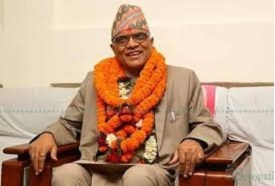
The Parliamentary Hearing Special Committee (PHSC) in Nepal has recommended acting Chief Justice Gopal Prasad Parajuli as the new Chief Justice of the country. He will continue to head till April 28 next year.
Parajuli had taken up the responsibility of acting Chief Justice after the retirement of then Chief Justice Sushila Karki on June 6, 2017. He is the senior-most Justice at the Supreme Court.
21 - US and Australia launch HIFiRE 'hypersonic' missile
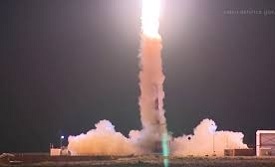
The US and Australia have jointly test-fired a hypersonic missile capable of travelling at Mach8 - eight times faster than the speed of sound.
The test was part of a project called the Hypersonic International Flight Research Experimentation Program (HIFiRE).
Hypersonic missiles are considered to have the potential to transform warfare as they are manoeuvred high enough to be safe from many existing air defences. The hypersonic weapons can strike enemies with a minimum of reaction time.
22 - Sri Lankan signed bill to probe into disappearances of people
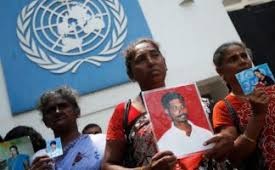
Sri Lankan President Maithripala Sirisena has signed the bill for Office of Missing Persons (OMP) paving way for its implementation.
The bill was long pending after its approval from Parliament last year in August. It seeks to set up an office to probe into disappearances of hundreds of people during and after LTTE war.
Tamil political parties and civil society groups have been long demanding for its implementation. At least seven thousand people disappeared during the last phases of war and their families have been protesting against it.
23 - US Senate panel approved Wray's nomination as FBI director

The US Senate Judiciary Committee unanimously approved the nomination of Christopher Wray to be FBI Director following the dismissal of the agency's former Chief, James Comey, by President Donald Trump.
All 20 members of the committee voted to approve Wray, a white-collar crime lawyer and former assistant attorney general under President George W. Bush, sending his nomination to the full Senate for a vote.
Trump nominated Wray last month after firing Comey during an FBI investigation into whether Trump campaign associates colluded with the Russians to help him with the 2016 presidential election.
24 - Australia joins International Solar Alliance
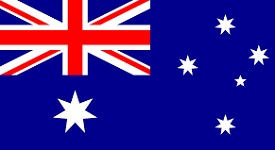
Australia became the 35th country to join the International Solar Alliance.
The International Solar Allianceis is co-led by India and France. The aim was to support developing countries to boost their solar production capacity.
The French Development Agency has pledged 300 million euros to fund initial projects. India, through the Indian Renewable Energy Development Agency (IREDA) and Solar Energy Corporation of India (SECI), is contributing $1 million to the ISA fund.
25 - French Senate approved controversial anti-terror bill
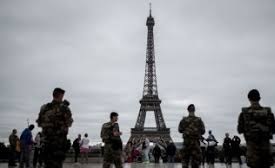
Frances conservative-dominated Senate has approved the controversial anti-terror bill by a majority. Senators passed the draft bill by 229 votes to 106. The document would now proceed to the lower house of the National Assembly for a vote in October.
The new security laws would replace a state of emergency imposed after November 2015 terrorist attacks in Paris. Under the proposed legislation, some of emergency state practices would become permanent law.
26 - UK government appointed Brenda Marjorie Hale as first female President of SC
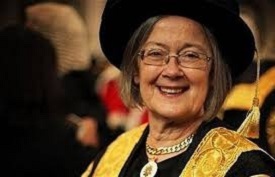
The UK government has appointed Brenda Marjorie Hale as the first female President of the Supreme Court, the senior-most judge of the country. Hale will take charge as the head of Britain's top judging panel in September following the retirement of current President, Lord Neuberger.
Three new justices have also been appointed to the Supreme Court - Lady Justice Black, Lord Justice Lloyd Jones and Lord Justice Brigg - who will take up the role when Lady Hale is sworn in officially as President on 2nd October.
27 - China & Russia conduct large scale naval drills in Baltic Sea
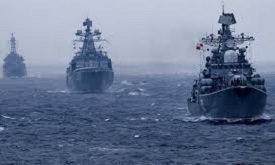
China and Russia have conducted their large-scale naval drills - Joint Sea 2017 - in the Baltic Sea.
Navies of both the countries held a series of drills as part of the "Joint Sea 2017" exercise program. A dozen vessels of different classes, and some 10 aircraft and helicopters from both sides took part in the first leg of the drills.
The Joint Sea naval exercises were held for the first time in 2012. The second phase of the navy drills in September will begin in the Sea of Okhotsk and the Sea of Japan.
28 - World's largest super-carrier USS Gerald R Ford commissioned

The U.S Navy and Newport News Ship Building Company officially commissioned the USS Gerald R. Ford (CVN-78), a new class of super-carrier advanced nuclear-powered aircraft carrier at the Norfolk Naval Station in Norfolk, Virginia.
The keel for the US$12.8 billion USS Gerald R Ford was laid down in 2009. The 1106-feet long carrier displaces 100,00 tons fully loaded and is powered by two new generation nuclear reactors.
29 - World's 1st floating wind farm started to take shape off coast of Scotland

The world's first full-scale floating wind farm started to take shape off the north-east coast of Scotland. The revolutionary technology will allow wind power to be harvested in waters too deep for the current conventional bottom-standing turbines used.
The Peterhead wind farm, known as Hywind, is a trial which will bring power to 20,000 homes. Manufacturer Statoil says output from the turbines is expected to equal or surpass generation from current ones. It hopes to cash in on a boom in the technology, especially in Japan and the West coast of the US, where waters are deep.
30 - Sri Lanka's cabinet 'cleared port deal' with China firm
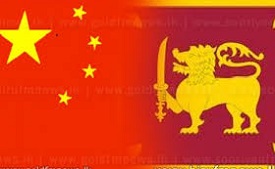
Sri Lanka's cabinet cleared a revised agreement for leasing majority stake in Hambantota port to a Chinese state owned company.
Under the new deal, the Sri Lankan government has sought to limit China's role to running commercial operations at the port while it has oversight of broader security.
India raised concern in 2014 when a Chinese submarine docked in Colombo, where another Chinese firm is building a 1.4 billion US dollars port city on reclaimed land. The agreement will bring a revenue of 1.12 billion US dollars which is required for debt-ridden Sri Lankan economy.
31 - BRICS Youth Forum opened in Beijing

2017 BRICS Youth Forum opened in Beijing to discuss the development of the youth in the countries of the grouping. Themed "Enhance BRICS Partnership, Promote Youth Development', the three-day forum gathered 50 youth representatives working as civil servants, scholars, entrepreneurs, artists and journalists from the BRICS countries.
Representatives will hold discussions on issues concerning youth policies and entrepreneurship, as well as the roles of BRICS youth in global governance, before formulating an action plan for the forum. In the past three years, the forum has had achievements in various fields, such as youth policies and employment through dialogue.
32 - BRICS nations sign memorandum to facilitate taxation cooperation
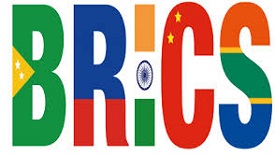
Tax authorities of the five BRICS countries have signed a landmark document to establish a mechanism for taxation cooperation.
The BRICS Taxation Cooperation Memorandum, signed at the fifth meeting of BRICS Heads of Tax Authorities, is the bloc's first document that elevates taxation cooperation to the institutional level.
The authorities also agreed to cooperate on taxation information exchange, improve consultation procedures efficiency, boost taxation capacities and plan paths for coordination of taxation policies and tax collection.
33 - Bolivian President declares total independence from World Bank and IMF
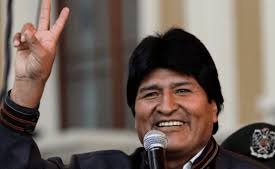
Bolivia's President Evo Morales declared that the nation has achieved "Total Independence" from the World Bank and the IMF.
Bolivia is now in the process of becoming a member of the Southern Common Market, Mercosur. Morales, a Democratic socialist, has managed to transform Bolivia into the fastest growing South American economy all while maintaining a balanced budget and slashing its once-crippling government debt.
The Morales administration made enormous transformations in the Andean nation.
34 - Senior leader of PML-N Shahid Khaqan Abbasi elected as interim Pak PM
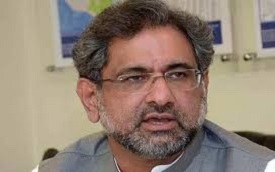
Former petroleum minister and senior PML-N leader Shahid Khaqan Abbasi was elected as interim prime minister of Pakistan. Mr Abbasi will run the government as interim prime minister until Nawaz Sharif's brother Shahbaz is elected as member of parliament.
The ruling party of deposed Prime Minister Nawaz Sharif met to choose the next prime minister, a day after countrys Supreme Court removed the Premier from office after finding that he and his family concealed their assets.
35 - Iran successfully launched satellite-carrying rocket
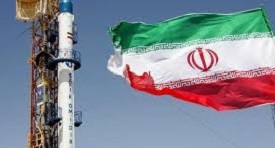
Iran successfully launched a satellite-carrying rocket into space. The rocket called Simorgh was launched from the Imam Khomeini National Space Station in Semnan. Simorgh means phoenix in Persian.
The rocket is capable of carrying a satellite weighing 250 kilograms (550 pounds). Iran has sent several short-lived satellites into orbit over the past decade, and in 2013 launched a monkey into space. The last successful satellite rocket launch was done in February 2015.
36 - Reince Priebus replaced as White House chief of staff
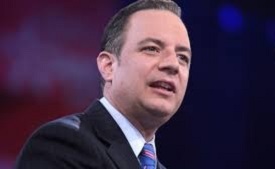
US President Donald Trump replaced his White House Chief of staff Reince Priebus. A day after his new Communications Director Anthony Scaramucci accused Priebus of leaking information to reporters, President Trump named General John Kelly as his next Chief of staff.
General John Kelly currently heads the Department of Homeland Security. The announcement of Mr Priebus's departure came after three Republican senators defied White House pressure to vote against health care reforms.